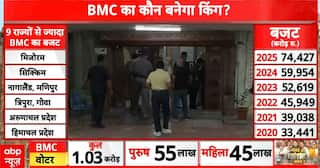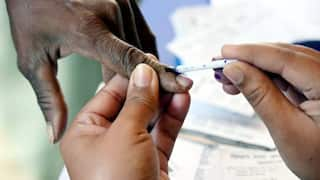Experts Share Precautions To Combat Infectious Diseases During Monsoon Season
Here are some precautions recommended by health experts that you can take and share with your loved ones to reduce your risk of contracting monsoon-borne diseases.

While the monsoon season provides relief from the scorching heat, it also increases the risk of infectious diseases. During this time, vector-borne illnesses such as dengue, chikungunya, typhoid, and malaria become more common, prompting health experts to emphasise the importance of preventive measures. Here are some precautions recommended by health experts that you can take and share with your loved ones to reduce your risk of contracting monsoon-borne diseases.
'Recognise The Symptoms'
Dr Brunda, Consultant in Internal Medicine at Aster CMI Hospital, stressesed the importance of recognising the symptoms of these diseases, which frequently include high fever, body aches, and fatigue. In severe cases, hospitalisation and intensive care may be required.
"Since children are more prone to infections, it’s advisable to keep them warm, and avoid getting wet in the rain, if so ensure they carry extra pair of clothing and ensure they are up to date with vaccinations," the doctor told ABP Live.
"It is imperative to take necessary precautions like drinking clean water, preferably boiled and cold water, eating freshly cooked hot food, avoiding eating outside, and washing fruits and vegetables thoroughly before using. Keep your surroundings clean and avoid water stagnation to keep mosquitoes away and follow hand hygiene practices," the expert added further.
'Ensure To Follow A Healthy Lifestyle'
Dr Aruna Babburi, General Physician at Apollo Clinic, T Nagar, recommended using mosquito repellents, wearing protective clothing, and following proper sanitation and hygiene practises to reduce the risk of infection. Furthermore, drinking safe, clean water and boosting immunity through a healthy lifestyle that includes a balanced diet, regular exercise, and adequate sleep are essential.
"To minimise the risk of these diseases, it is important to take preventive measures such as using mosquito repellents, wearing protective clothing, ensuring proper sanitation and hygiene practices, drinking safe and clean water, and avoiding consuming uncooked or improperly cooked food," Dr Babburi said.
"It is also important to boost your immunity by maintaining a healthy lifestyle by eating a balanced diet, getting regular exercise, and getting enough sleep. A strong immune system helps protect against various infections. In case of any symptoms, it is advisable to seek medical attention promptly," the doctor added.
'Access To Clean And Safe Water Is Must'
During the monsoon, Dr Dipankar Sarkar, Internal Medicine & Critical Care specialist at Manipal Hospitals, Salt Lake, Kolkata, drew attention to the vulnerability caused by stagnant water and contaminated drinking water. Waterborne diseases such as diarrhoea, hepatitis, and typhoid are becoming more common as a result of heavy rainfall and flooding. To combat this, he emphasised the importance of drinking clean and safe water, which can be obtained by boiling or using water purifiers.
Furthermore, vector-borne diseases spread by mosquitos and flies pose serious risks. Dr Sarkar recommended using mosquito nets to protect against diseases such as dengue and malaria. Food and water can be contaminated by flies, resulting in acute gastroenteritis and other gastrointestinal infections. To prevent such infections, proper sanitation practises are essential.
During the monsoon, the high humidity creates ideal conditions for the growth of bacteria, viruses, and fungi. Pox, lower respiratory tract infections, skin and soft tissue infections, and amoebiasis are among the diseases that Dr Sarkar warns about.
"Personal hygiene, proper ventilation, and avoiding overcrowding are all critical during this time," the doctor said.
To stay healthy during the monsoon, health professionals advise drinking clean, warm water, practising proper water sanitation, and disinfecting waterlogged areas. Additional precautions to take include practising good hygiene and eating fresh, hygienic food. Following these expert recommendations can help protect people and reduce the risk of infectious diseases during the monsoon season. To have a safe and healthy monsoon, you must be vigilant, take necessary precautions, and prioritise your health and well-being.




































